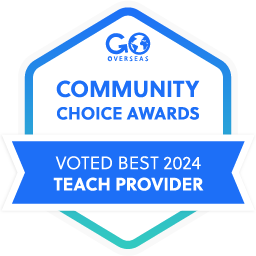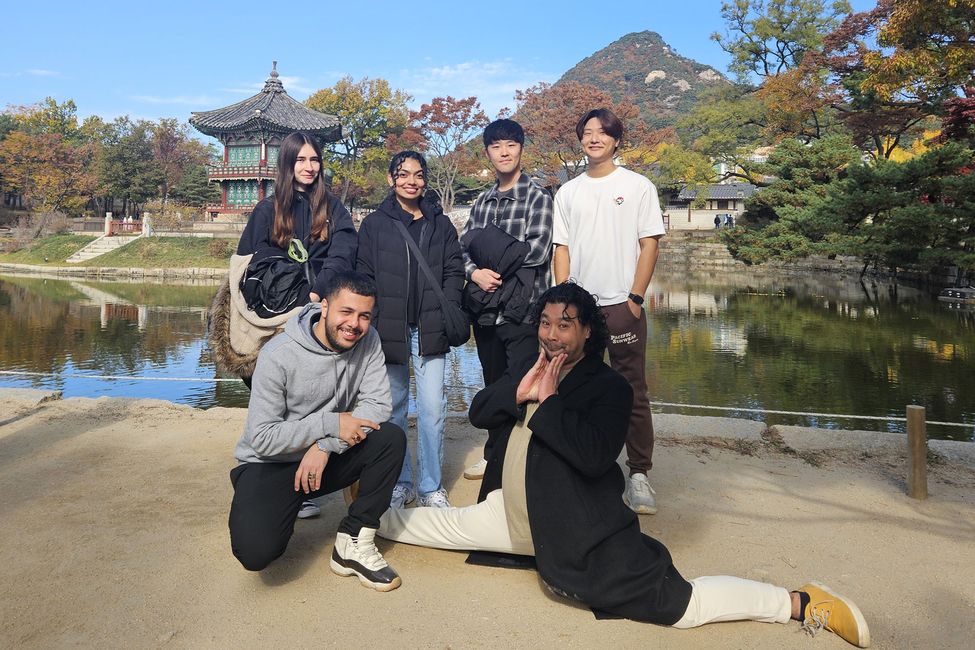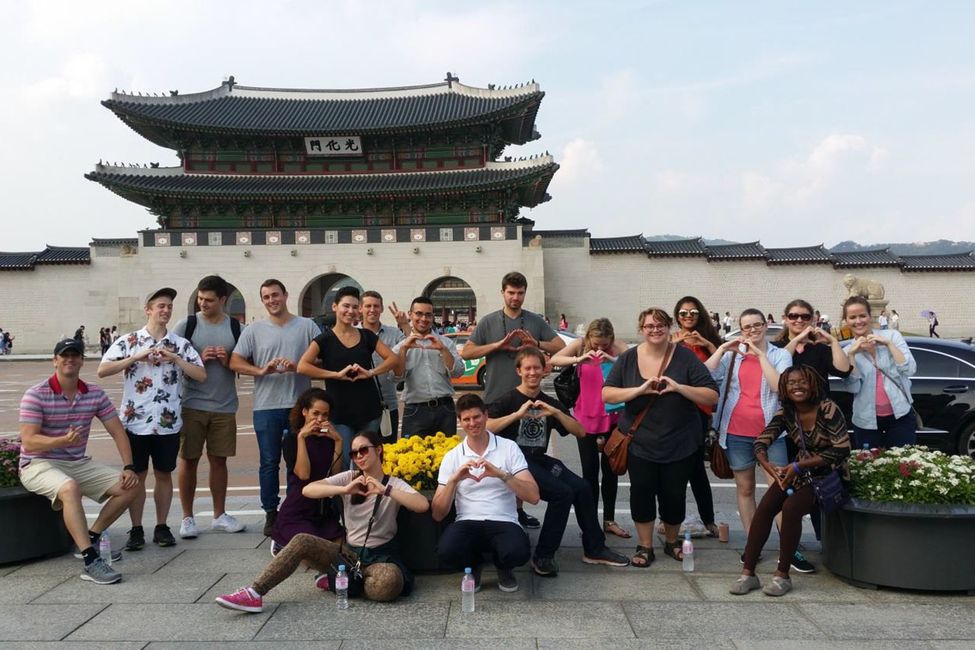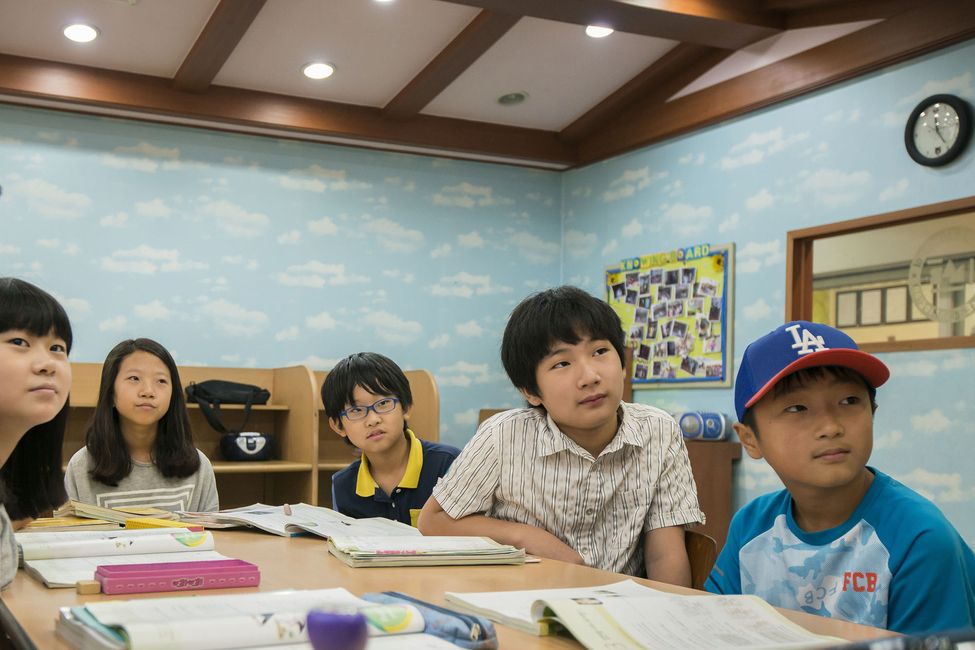
Teach in South Korea Basics Program
Placements for candidates who already have teaching credentials
What's Included in CIEE's Teach in South Korea Basics Program
- Expertise and Experience - Our staff offer honest advice and individual support and coaching from start to finish
- Choose the Type of Job You Want - Whether you prefer public or private schools, get step-by-step guidance based on CIEE's long experience in Korea
- Detailed Guidance With Visa and Background Check
- Schools Provide Rent-Free Housing
- Practical and Cultural Advice - Access to Before You Board: an online course designed to prepare you for life in South Korea. We’ll also invite you to join CIEE Chingu: a partner program that connects CIEE Teachers across Korea.
- Weekend Retreat in Seoul - Make friends, meet staff, and get support. Hotel, transportation, meals, and activities provided.
- Two Layers of Health Insurance - Your job lets you access Korea's high quality, low cost medical system, and CIEE provides additional international coverage that's helpful during trips outside Korea too.
- 24/7 Emergency Support from Local CIEE Staff
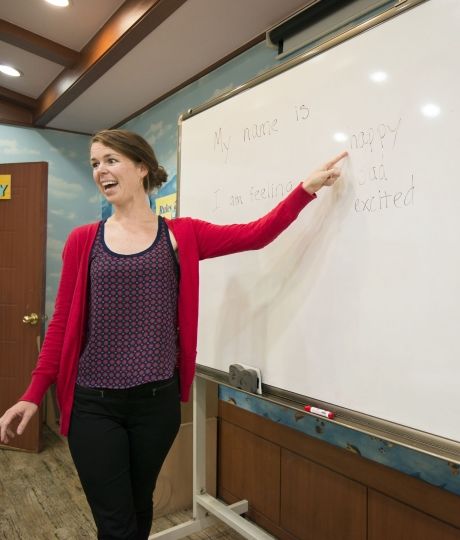
Placement Destinations for Jobs In South Korea
CIEE places teachers all over Korea! While it’s best to keep an open mind about location, it’s understandable to have location preferences. For an overview of major cities and provinces in South Korea, be sure to read our Destination South Korea Guide. The guide also includes links to location-specific alumni blogs and local expat groups.
CIEE wants all our students to feel welcomed, supported, and empowered to succeed while studying abroad. No matter where you choose to study abroad with CIEE, our staff will be on hand throughout your program to provide advice, resources, and support.
The Take-Aways
COMPENSATION
Rent-free housing with basic amenities, competitive salary, airfare, South Korean-national medical insurance benefits.
PREPARATION
Detailed pre-departure guides on topics like phones, cultural differences and advice from former teachers, plus an orientation and networking weekend in Seoul.
ASSISTANCE
Pre-departure guidance, international medical insurance and 24-hour worldwide assistance with CIEE iNext, in-country support from resident staff members.
Program Blogs
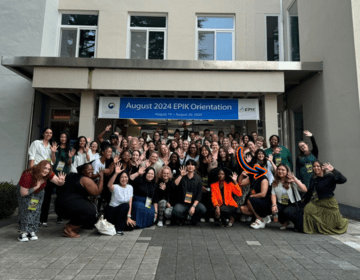
CIEE Korea Spotlight: Read Karime's Experience at EPIK's Orientation!
Karime recently arrived in Korea to begin her year of teaching abroad! She attended EPIK’s Orientation recently and wrote about her experience. Read her interview below: How was orientation? Walk... keep reading
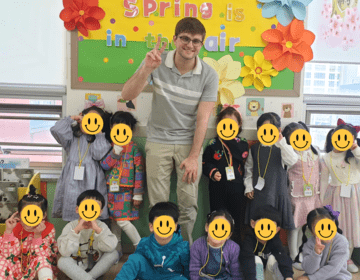
CIEE Korea Spotlight: Meet Nick
Nick is currently teaching in Gwangju, South Korea. What made you want to teach abroad? I started watching Chris Broad videos on YouTube about Japan a few years ago and... keep reading
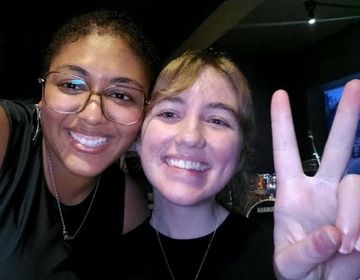
CIEE CHINGU – A Partner Program for Teachers in Korea
Chingu ( 친구 ) is the Korean word for friend . CIEE Chingu is a partner program included in CIEE’s Teach in South Korea programs! Our goal is to connect... keep reading
Job Description
In South Korea, you’ll be teaching English in a society where academics are highly valued. Positions are available with KG and elementary students, so if you’re excited to be a language and cultural ambassador for South Korea’s youngest learners, you’re on the right track!
Most Korean students attend public school during the day, then private academies called hagwons in the afternoon or evening, to help them meet high expectations for educational achievement. Each type of teaching job has its pros and cons. Visit our South Korea Schooling System comparison guide for more information.
If you choose to apply for private schools (hagwons), you have much more influence over location, and you will likely have other expat teachers at your school. It’s the best approach for friends and couples seeking placement together, too. Our program will guide you with documents and the visa, and arrange video interviews with reputable employers.
If you choose to apply for public school jobs, CIEE’s program will provide guidance on how to make a strong application with EPIK, the Korean public school program for foreign teachers. EPIK is competitive, and offers little to no control over location, but has longer vacations and Korean co-teachers.
Keep in mind, you can only apply for one school type at a time. Not sure which one is right for you? Check out our page on Types of ESL Jobs in South Korea and then schedule a phone call!
Compensation & Benefits
Regardless of the type of school, teaching in Korea offers an outstanding package when it comes to salary and benefits. You can live comfortably and still save money each month, and use it for travel, student loans, or whatever you want!
Private Schools pay 2.3 to 3.0 million won/month, plus rent-free housing. The highest salaries typically correspond to a heavier workload.
EPIK Public Schools pay 2.1 to 2.4 million won/month, plus rent-free housing. Salary depends on credentials and province assignment.
You’ll have a small deduction each month for Korean taxes, but you’ll be enrolled in Korea’s National Health Insurance which delivers excellent care at very low prices. There’s also a contract completion bonus equal to one month’s salary at the end of your program.
All teachers receive rent-free housing from their employer, in the form of a small studio apartment with necessary furnishings.
Schools & Locations
Private schools are concentrated in cities and urban areas, where there are lots of customers! It’s rare for a first-time teacher to get a job in central Seoul, but there are lots of opportunities nearby in Incheon, Gyeonggido, and Suwon, as well as other cities and urban districts throughout Korea. We’ll do our best to follow your preferences when arranging interviews!
The EPIK Public School program places teachers nationwide, based on each area’s needs. You’ll be able to list a single province or city as a preferred location, but there’s no guarantee, and the major cities are highly competitive. EPIK candidates must be flexible about location, since province assignments are only announced about 5 weeks before departure.
Workload
Participants at private schools are solo lead teachers with full responsibility for their classes. Class sizes are small (5-12 students), but the overall workload is fairly heavy: typically 30-33 classroom teaching hours* each week. 9-10 paid school vacation days (fixed schedule), plus 10-15 national holidays.
Participants at public schools have Korean co-teachers with them most of the time, but should be ready to take the lead on lesson planning. Expect 20-30 students per class, and 20-25 teaching hours* per week. 24-26 paid school vacation days (fixed schedule), plus 10-15 national holidays.
*Outside of teaching hours, other obligations including meetings, free periods, assemblies, and lunch supervision.
Qualifications
You don’t need to speak Korean to apply! You'll need a bachelor’s degree in any field, along with a few other qualifications. These, plus a sense of adventure and a real desire to cross cultural boundaries and engage with people eager to learn English, make you a great candidate.
Requirements
- Native-level English fluency
- A bachelor’s degree in any field, from a university in one of the countries listed below
- Citizenship in the United States, Australia, New Zealand, Canada, Ireland or the United Kingdom.
- A commitment to 12 months of employment
- At least one of the following teaching credentials: TEFL/TESOL/CELTA or Education Degree. Don’t have credentials? Our original Teach in Korea program will help you get TEFL certified!
- Must be 50 years old or younger
- Clean criminal history with no record of arrests or charges.
To make your application stronger, highlight additional qualifications, such as:
- Experience studying, working, or volunteering abroad
- A degree in English or education
- Experience instructing children
Please note that your passport's validity must extend at least 6 months beyond the end date of your desired program. If it expires before then, renew it right away!

TEFL Certification
Teaching English as a Foreign Language (TEFL) certification gives you the skills, experience, and confidence to make teaching abroad even more rewarding – both for you and those you teach. The CIEE TEFL 150-hour certification course can easily be added on to your program to ensure that you:
- Develop an awareness of the field and practices of TEFL
- Understand the components of English related to teaching nonnative speakers
- Get personalized feedback from an experienced TEFL tutor
- Can design lessons for TEFL students at a variety of levels
- Complete 20 hours of practice teaching experience to hone your skills
Discover the benefit of including a TEFL Course with your teach abroad program.
Our Team
Emma Devens
Teach Abroad Advisor
Emma studied abroad in Budapest, where she fell in love with travelling and learning from other countries and cultures. She then taught English in Moscow and Shanghai for a few...
